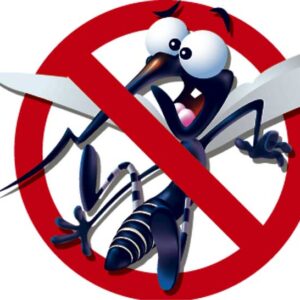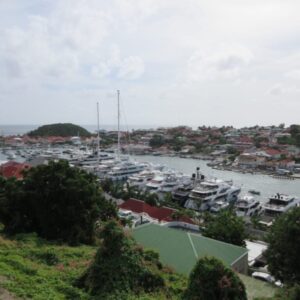St. Maarten vs Dengue Mosquito – Fight of the Year
St. Maarten versus Dengue Mosquito
As Dengue teeters on the verge of an epidemic in many parts of the Caribbean and the world, the tiny 16-square-mile nation of St. Maarten is fighting back in a big way. The Ministry of Health has launched a “Get Checked” campaign aimed at broader community involvement in swatting out the dengue causing Aedes Aegypti mosquito.
Cognisant of the fact that tourism is the country’s economic bloodline and that visitors should have hindrance-free fun without the worry of Dengue Fever, the “Get Checked” campaign puts the responsibility of waging the battle against the tiny mosquito and its off-springs in the hands of each resident.
The Health Ministry has taken the fight against the mosquito into neighbourhoods with public information sessions. These sessions impart vital information to arm residents with options to stop mosquito breeding and methods of protection if a swarm of mosquitoes launches an attack.
All residents (and visitors) are encouraged by the health officials to check their immediate surroundings for potential mosquito breeding areas and to eliminate these as quickly as possible and on a regular basis.
Elimination of mosquitoes and breeding sites are both an individual responsibility and a community responsibility. Anything that can trap stagnant water is a potential breeding site such as potted plants, old or discarded buckets, water tanks, old tires and overgrown vegetation that allows for the water.
The Aedes Aegypti mosquito lays its eggs in clear and clean stagnant water and can complete its life-cycle of egg, larvae, pupae to adult mosquito within eight days. It can be recognised by alternate black and white horizontal stripes about its body.
People bitten by the female vector Aedes Aegypti mosquito are exposed to Dengue, which is fatal in some cases.
Dengue Symptoms
Dengue symptoms include high fever, severe headache, backache, joint and eye pain, nausea and vomiting and rash.
Persons with dengue fever symptoms are urged to consult with a physician, who can then refer them to the lab for a laboratory test that would confirm if they have dengue or not.
Persons can also expect proper advice to ensure a healthy recovery while avoiding other health risks associated with Dengue Fever.
Once a person has developed a fever, the infectious period lasts for about a week. Most people recover without any complications, using pain relievers, liquid intake (preferably water or juice) and lots of bed rest. Self-medication should be avoided and a physician should be consulted.
So, for visitors and residents alike, apart from applying a generous amount of sunscreen persons should also consider a generous splash of insect repellent to warn off mosquitoes.
It is also advisable to skip the skimpy outfits in the evening leaving less skin exposed to mosquitoes.
For more information about Aedes Aegypti mosquito breeding sites and preventive measures, call the Health Ministry on +1-721-542-2078 or +1-721-542-3003 or e-mail surveillance@sintmaartengov.org.



